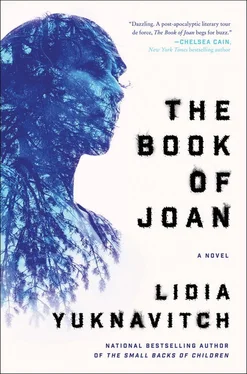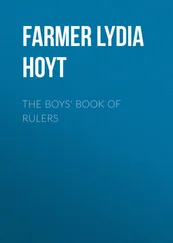“The wall,” Nyx says, gesturing toward the sloped walls of the cave.
I swivel my bloated head. “What about it? It’s a wall,” I say, impatiently. But then it isn’t.
First the wall goes from dark umber to amber to azure. Then it begins to sweat and glisten. And then the wall seems to swim in front of us, until what had been solid is suddenly not, and Nyx walks straight through it, blurring out of sight. Within a minute, the wall returns to its impenetrable self.
Nothingness.
Pure and thick.
“Okay! You have my attention,” I yell. The walls echo back at me. “What the fuck was that?” My voice merely ricochets around. I walk closer to the wall. I put my hands against it; solid matter. “Nyx?” Nothing. Just the vanishing points in the cave where light gives way to shadow.
Then it’s Nyx’s voice: “Please take care to move slowly; you are not exactly among the living.”
What the fuck does that mean? Not exactly among the living?
Now my head feels so light I think it may float off my neck. I drop to my knees, nearly passing out. I put my face on the ground. I taste dirt.
“Watch.” Nyx’s voice again.
I don’t move, but I eye the wall again. It dances with shadows and shapes, as if the former fire had created projections that lingered.
“Put your hands into the wall,” Nyx’s voice says.
Right, I think, as if I should trust the disembodied voice of a blue-green alien. And yet I find myself standing, walking over to the wall, and placing my hands on it. Into it. For the wall is not solid. The shapes crackle and hum with electrical current. On the other side, my elbows feel a great pull—not another person, but a kind of energy that feels centrifugal. Then the wall buckles and I am in to my shoulders, and the wall has become an abalone-colored screen, a 3-D screen quickly swallowing me up, until I find myself standing in a room with something I haven’t seen in what feels like eons.
A girl.
I am alone, in a child’s room, with a white-haired girl. A young child’s room, from the looks of it. Three of the walls are violently bombed-out. There is no ceiling. The floor is peppered with rubble and dirt, sticks and leaves and rocks and pieces of walls and things. Shredded stuffed animals, toys, and shoes. And what appears to be the shattered glass of a chemistry set. The bed is unrecognizable, save for the gutted mattress. Somehow, a little desk has survived intact, set in front of what is left of a window.
“ La fenêtre ,” the little girl says, pointing to the place where a window used to be.
“What is your name?” I venture. I have no idea where we are, if things are real or imagined.
“Nyx,” the girl says. “We should hurry, they’ll be here soon.”
I step closer to the girl, but she leaps back. “It’s okay,” I say, “I won’t hurt you.”
The girl laughs. “That’s funny,” she says, returning to her desk.
“What’s funny about it?”
“Everyone’s dead, is what.” The girl sits down at the desk, opens it, carefully pulls out a piece of paper and a pencil—two objects that momentarily stun me. Artifacts.
“Who is ‘everyone’?” I ask.
The girl sighs. I hear impatience in her sigh. “My sister. My mother. My brother. Like yours. The whole town. La fenêtre ,” she says again, nodding her head in the direction of the blown-out wall and window.
I walk to the opening and look out. I know what she means. It’s like where I lived as a girl. It went like that during the Wars. Things were there and then they were not. People. Buildings. Animals. Sirens, and the sky lighting up with fighters and firepower and the ground and space and sound, and everything real lighting up and rumbling into nothing. Some people were fighters and some people ran for cover and some people just waited for death.
“My sister was practicing words with me. Every day she taught me new words, and numbers, every day of the Wars, she kept me reading and counting and drawing. To distract me, I guess. To not give up. When the cataclysm hit, my sister melted in front of me. I mean, I know that’s not really what happened, but that’s what I remember. She melted. Like a chemistry experiment. But I didn’t.” The girl concentrates on whatever she’s drawing on the piece of paper. Momentarily she looks up at me. “You didn’t either.”
“No,” I say. I didn’t know I’d be spared from genocide when I touched my hands to the earth. I thought, maybe even hoped, that I’d melt into raw matter like everyone else. This girl probably didn’t know she wouldn’t burn, either.
“Engenderines. Both of us.”
The word sits in the air between us, not materially visible and yet not nothing either. Like molecules. Engenderines were like mythical creatures or astrological signs dot-to-dot in the night sky. Stories of beings who were closer to matter and elements than to human. I don’t know where I am. I don’t know if I’m in a dream space of Nyx’s imagination or if I have somehow time-traveled back to her actual past. I don’t know anything. The girl looks straight up for a moment. “What are you looking for?”
“They’ll be here soon,” the girl repeats.
I walk the length of the dream, the room, whatever it is. The landscape around us matches the present tense, not the past. The wronged world. Lunar and scarred. The sepia light of a damaged atmosphere, sun, moon, a flattening color. The treeless horizon and hills made of dirt and dry riverbeds carving out directionless lines. Dead earth.
“There used to be a forest, there”—the girl points—“and a lake. And horses and cows and swans—even a black one like in fairy tales. Swans don’t really have a purpose. But I miss them the most. Maybe because of fairy tales.”
I walk back to the white-haired girl at her little desk. “Who will be here soon?” I ask, wondering if we are closer to or farther away from danger here. Wondering if I even care. There is a calm here. A still.
“The men is who,” the girl says.
“I see. How many men?” Even I don’t quite understand the aim of my question.
“Thousands,” the girl says. “Whole armies.”
I remember men. I just can’t remember how long it’s been since I saw them en masse. My brother’s corpse flashes up behind my eyes. Then my chest clicks my shoulders and spine into alertness. Wherever I am, I realize, I can’t stay. “What is this picture you are drawing? Is it about the Wars? With armies of men?”
The girl looks up at me as if I’m stupid or insane. Her brows furrow. “Real men are coming,” she says, “though they were just boys back then…” Her face loosens. “I saved them.” The hair on my arms prickles up like a tiny forest.
“Saved them from what?” I ask.
The girl puts her pencil down, picks up the beautiful piece of paper, and hands it to me. “For you,” she says, in a voice older than her years.
I look down. On the piece of paper the girl has drawn an intricate map.
“For you,” she says again. “This is the way to Leone.”
In the center of the map is a name: Christine.
Christine surveys her players. Their skin looks lifted and taut, like youth. But youth toward what? CIELers had no future. They glowed like dying stars, pretending their light and puffed-up cascades of flesh gave them presence and meaning. They carried stupid stories of themselves around like capes and headdresses. Underneath they were all atrophying bones and sacks of meat with half-century shelf lives.
Each player has a different silk robe on—her idea—in a palette of deep azures and burgundy reds, blacks and purples and the dark green of deep forests. Or what she remembers of forests anyway. It is more color than she’s seen in years.
Читать дальше












